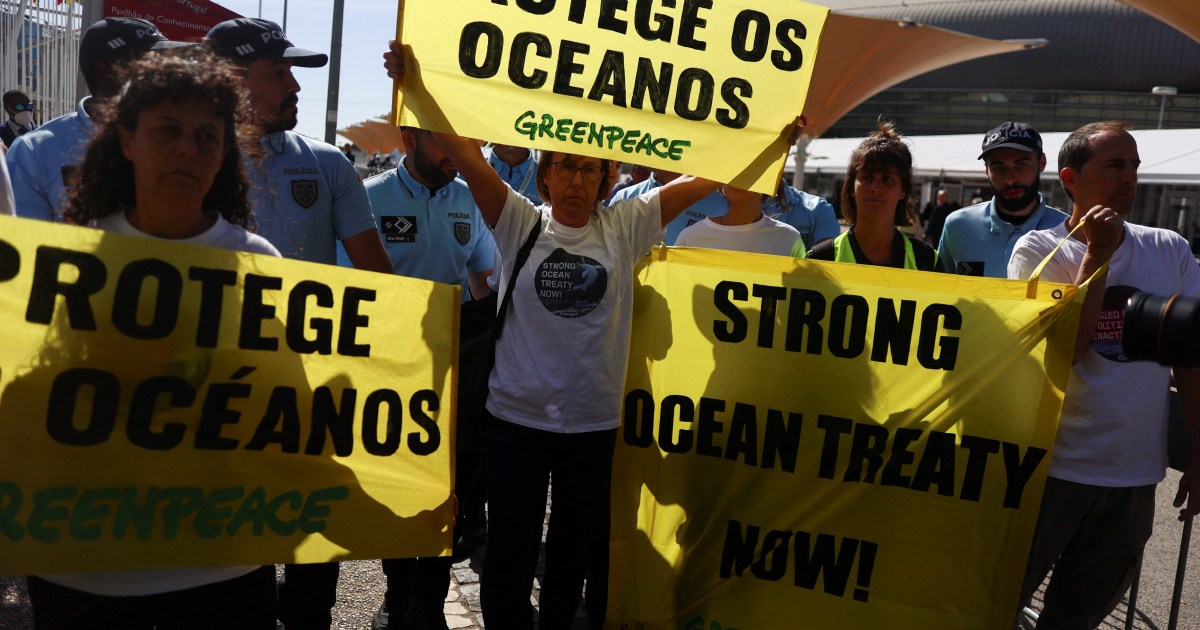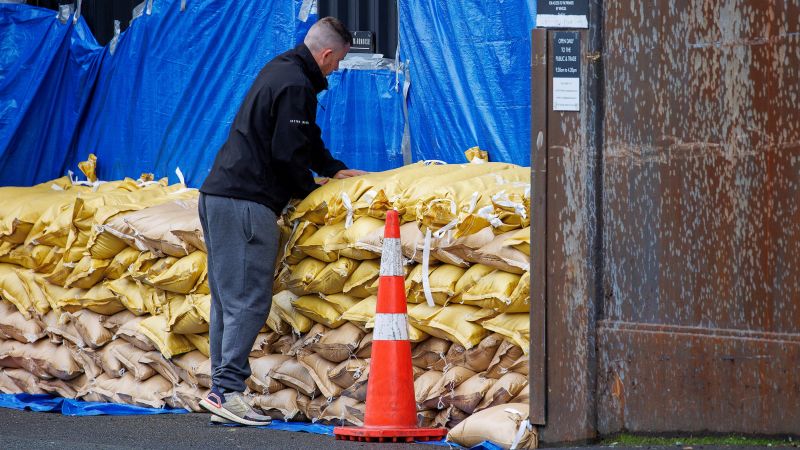Environmental groups press leaders as UN Ocean Conference ends
As five-day conference comes to an end, several NGOs urge leaders to keep pledges made to save the world’s seas.
Environmental groups have urged world leaders to keep promises they made at the UN Ocean Conference in Lisbon this week, to do everything in their power to save the world’s seas.
“The ocean, climate and coastal communities worldwide need real progress, not promises, when it comes to ocean health,” Marco Lambertini, director-general of the World Wildlife Fund (WWF), said on Friday.
The conference brought together about 7,000 delegates, including heads of state, scientists and NGOs.
Many shared worries that the energy crisis caused by the war in Ukraine could undermine efforts to fight climate change. Others, including President Emmanuel Macron of France, expressed concerns about deep-sea mining and some called for a moratorium.
Attendees at the conference assessed progress in implementing a UN directive to protect marine life.
The WWF told leaders to seize the momentum and resolve longstanding issues surrounding the protection of the high seas such as plastic pollution by swiftly enacting and ratifying “robust global treaties”.
Lisbon is the last major political gathering before member states meet in August to try to hammer out a long-awaited treaty to shield open seas beyond national jurisdictions. Greenpeace’s Laura Meller said the success of the Lisbon conference would be measured in August.
“We have seen many declarations before, we have heard many promises, pledges and voluntary commitments,” said Meller. “But if declarations could save the oceans they wouldn’t be on the brink of collapse.”
Negotiations on the treaty began in 2018 after a decade of discussions at the UN but member states failed to reach a consensus in March.
‘Tipping point’
In a joint statement published by an alliance of numerous NGOs, including BUND, WWF and Misereor, criticised the conference’s closing statement as non-committal; it remained uncertain, whether voluntary measures would be carried through, and there was neither a report on the progress of the goals set out in the last conference, which took place in New York in 2017, nor a means of control for the implementation of the new aims.
The only positives, according to the statement, were the numerous individual initiatives announced in Lisbon in areas such as deep-sea mining, fishing and underwater noise pollution.
Mining of the deep sea was a hot topic at the conference, with Macron saying on Thursday a legal framework was needed to stop it from going ahead.
There is growing interest in deep-sea mining, along with pressure from some environmental groups and governments to either ban it or at least enact appropriate regulations.
Several nations, such as the Pacific islands of Palau and Fiji, have called for a global moratorium on all deep-sea mining, citing environmental concerns and a lack of sufficient scientific data.
“The momentum created this week … is a tipping point for the deep ocean, the blue heart of our planet,” said Sian Owen, director of the Deep Sea Conservation Coalition. “President Macron has effectively echoed the countless calls … to press ‘pause’ on any and all ambitions to mine the deep-sea.”




